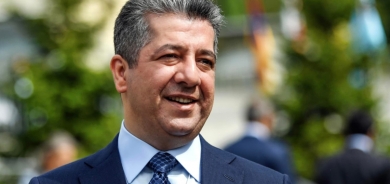After much ado, luckluster French reshuffle leaves Macron's 'second wind' in doubt

A handful of other government ministries also changed hands. Former Les Républicains conservative Franck Riester, 44, becomes culture minister – a political figure recruited to replace publisher Françoise Nyssen, who had struggled in the role. Longtime Socialist Didier Guillaume, 59, gets the agriculture portfolio. Centrist Jacqueline Gourault, 67, meanwhile, is promoted to helm a vast territories ministry. A number of other faces, largely unknown to the general public, also earned appointments to under-minister or secretary of state roles.
A former Socialist, Castaner presciently threw his weight behind Macron's longshot presidential bid in 2016, becoming his campaign spokesman. Named government spokesman after Macron’s 2017 election, Castaner left that post to take the reins of the president’s fledgling La République en Marche party less than a year ago. The 52-year-old finally earns the post he had been coveting – a full two weeks after Gérard Collomb’s theatrical departure.
Second wind?
Indeed, France’s latest cabinet reshuffle was widely touted as a chance for Macron, 40, to find a much-needed second wind and bring an end to a long, difficult stretch just 17 months into his term.
But after a drawn-out reshuffle soap opera – a fortnight that allowed media pundits to ratchet up expectations, set opposition tongues wagging about chaos at the top and lent credence to reports of cracks in Macron’s relationship with Prime Minister Édouard Philippe over personnel changes – the sequence may well turn out to have done more harm than good to Macron’s reputation after a tricky summer.
Once a clement period in French public opinion polls, with voters apt to let bygones be bygones for a time, the dog days were disastrous for Macron, beclouded by the damaging Benalla Affair. Mid-July brought the revelation that Alexandre Benalla, a close Macron associate at the Elysée Palace, had been caught on camera roughing up May Day protesters only to be quietly suspended from his duties. The parliamentary inquiries that ensued saw televised committee hearings – usually dry, neglected affairs – suddenly scoring viewership records with rapt audiences tuning in en masse. A September poll released by the Elabe firm showed 73 percent of French people surveyed felt the scandal had had a negative impact on their image of the president. That included 59 percent of Macron’s own voters.
Unruly ‘rentrée’
The rentrée, the back-to-school (and work) period that effectively heralds a new political year and sets the tone for the months to come, was not more kind to Macron. Two of his highest-profile cabinet ministers quit in quick succession – and neither went quietly.
On August 28, environment minister Nicolas Hulot blindsided Macron by announcing his surprise resignation during an early morning live radio interview.
The popular celebrity environmentalist – whose eco-cred had been coveted for cabinet posts by Macron’s predecessors in vain and who represented a real coup for the freshly elected Macron in 2017 – assailed the president’s own credibility in the process. “I no longer want to lie to myself,” an emotional Hulot told France Inter radio. “I don’t want to provide the illusion that my presence in the government means we are up to scratch with what’s at stake.”
Then in October, Collomb – the first heavyweight prize Macron succeeded in poaching from the Socialist Party ahead of his maverick run for the Elysée – made his growing disillusionment with the president mercilessly public. After Macron declined to accept Collomb’s resignation, the 71-year-old former Lyon mayor forced the president’s hand, airing his insistence on leaving in the press and on TV.
“Usually folks fight to become cabinet minister and I’m fighting to no longer be one,” he told the CNews channel.
No new starpower
Seeking an approval bounce from a government reshuffle may be a bridge too far for any French leadership team. To be sure, none of the ministers named on Tuesday come close to the public consensus or starpower of a Nicolas Hulot. The TV-star-turned-cabinet-member remains by far France’s favourite political figure, earning thumbs up from 70 percent of those surveyed for October’s monthly IFOP-Paris Match popularity ranking.
If the only second wind Macron can hope for from Tuesday’s rejig is a political one – shoring up his motley alliances left, right and centre; repairing the rifts that have widened between France’s executive and local officials with a new, solid territories ministry; and stopping the bleeding with loyal, safe political professionals unlikely to storm out of cabinet offhand – he will at least have steadied the ship.
But writing in Le Monde on Tuesday, editorialist Gérard Courtois argued the reshuffle saga will have “nourished doubts that the president will need to dispel without delay” about Macron’s authority, his decisiveness, his ability to attract talent and the soundness of the pair he forms with Philippe.
“Moreover, the turbulence in recent weeks eclipsed reforms (like the pact on businesses law) and presidential initiatives (on fighting poverty and overhauling healthcare),” Courtois writes. “But it can only have fanned the flames of French people’s distrust or exasperation in their politicians, seen as too preoccupied with their power plays to seriously tackle the country’s problems.”
France 24














